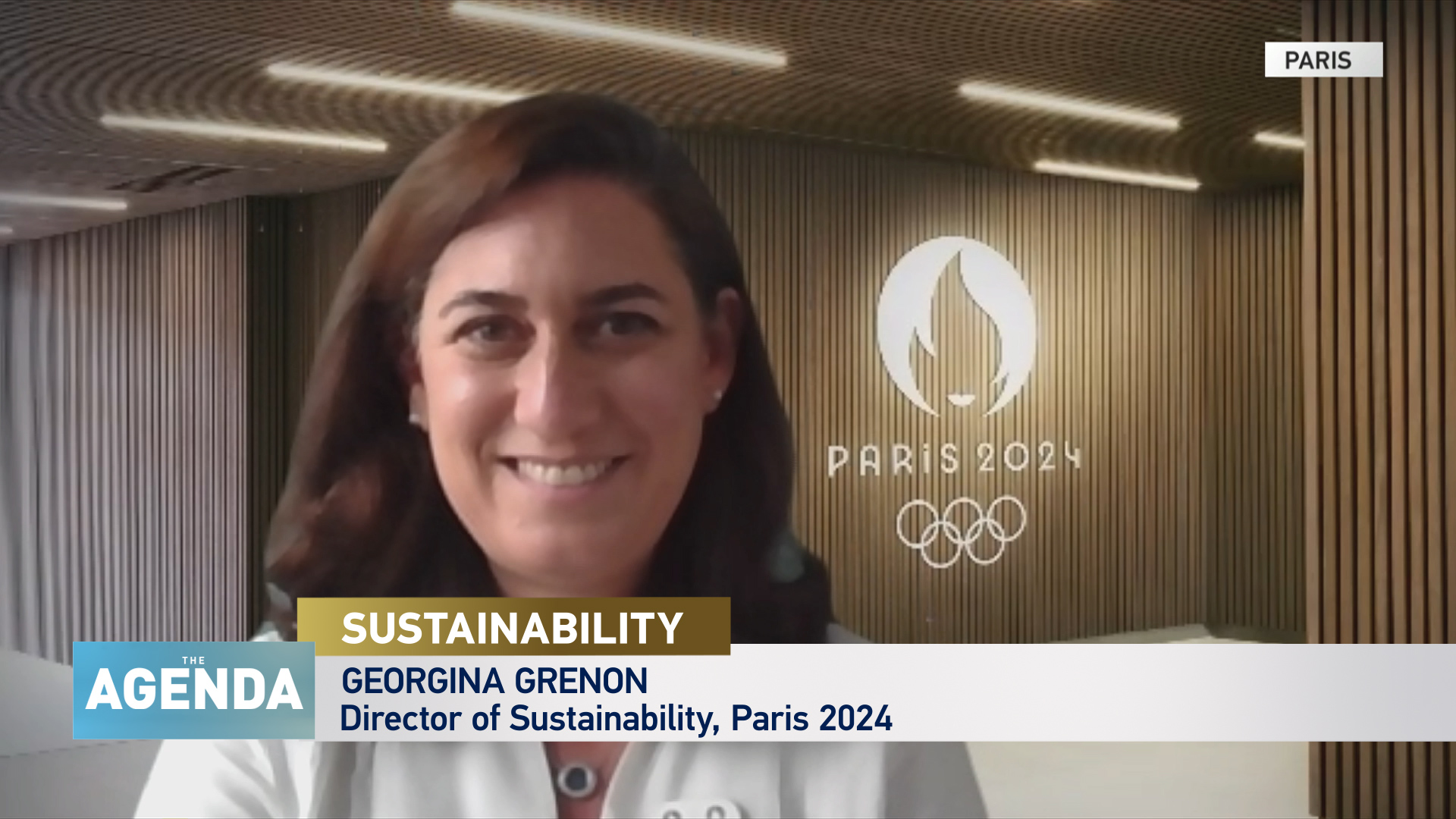05:55

WHAT'S THE ISSUE?
In three years' time, the world's greatest athletes will gather in Paris for the next summer Olympics.
And - assuming things are back to normal after Tokyo's pandemic games - millions of fans will also descend on the French capital.
Between travel and construction, food and fuel, lodging and litter, the Olympics is not exactly an eco-friendly undertaking. So just what can be done to make them as sustainable as possible?
Georgina Grenon, Director of Sustainability for Paris 2024 joins Stephen Cole to outline her plans to make Paris the first ever climate positive Olympics.

MEET THE EXPERT
An expert in renewable energies and clean technology innovation, Georgina Grenon began her career in business development at YPF S.A., the national oil company in Argentina.
Later she joined the Directorate-General of Energy and Climate, part of the French Ministry of Ecology and Energy, where she supported the development of renewable energy policies and markets for six years. She also represented France at the International Energy Agency, promoting international cooperation in the creation of markets, innovation and the deployment of clean technologies. She then moved to the ENGIE Group, becoming director of the New Business Factory at ENGIE Fab.
In August 2018, Grenon joined the Organizing Committee for the Paris 2024 Olympic and Paralympic Games as its Director of Sustainability.

WHAT DOES GRENON SAY?
Sustainability is at the very heart of the plans for the next Summer Olympics, Grenon says: "It starts with the bidding process, you know, with the conception of the games themselves. So setting for ourselves ambitions in terms of climate... we have 100 percent renewable electricity for all our needs. We have sustainable constructions, sustainable food. So everything we do, we are putting sustainability behind."
And those ambitions are huge: "We will not be climate neutral or carbon neutral. We'll go beyond that. We're going to be climate positive. We're aiming for less than half of emissions than previous games, which is massive, as you can imagine. We are committed and we have the means to deliver a climate positive games, which is what the IOC is asking other countries to other cities to do from 2030 onwards. So we'll be six years ahead in that."
And just how will that be achieved? Grenon says: "We have a zero waste to landfill plan - so work on reducing waste and actually [considering] what to do with it after we've used our resources and then working on new operational solutions to reduce and hopefully avoid single use plastics bottles would have beverages in our games venues in 2024."
And the Games will be looking very closely at what emerges at COP26 in one very specific aspect – developments on what's known as Article Six. "That's the one," Grenon says, "that should define the specifics of the voluntary international cooperation on carbon emissions markets. So since all our climate action is 100 percent voluntary, we're counting on these rules of the game, you know, to be firmly defined."


- Bayer International's Senior Vice-President for Public Affairs, Science and Sustainability, Matthias Berninger, joins Stephen to explain how the company has gone from the world’s biggest polluter to outside the top 250 in just over ten years.
- British Airways' Head of Sustainability, Carrie Harris tells The Agenda how her company – the first airline to report its carbon emissions back in 1992 – is leading the way towards greener travel.
- Allan Xie An, Deloitte China's Climate and Sustainability Service leader explains how the post of Chief Sustainability Officer is becoming a must-have for companies around the world.

